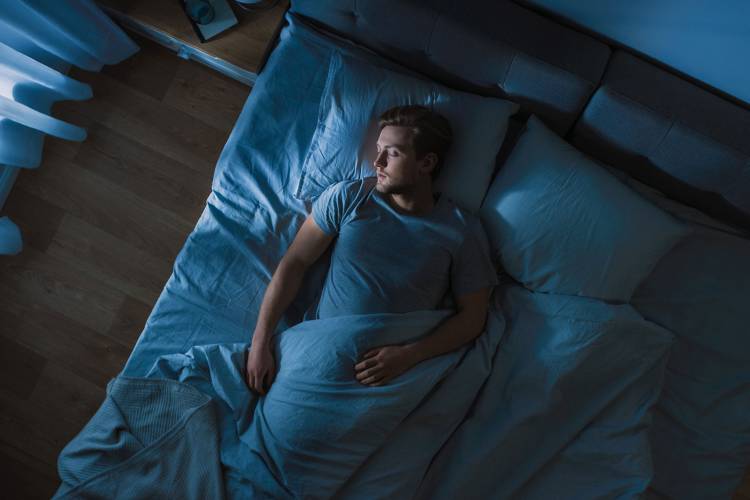Sleep paralysis: what is it
Have you ever had the feeling of waking up and not being able to move? Today we tell you what sleep paralysis is and what causes it. Take note!
TRIED AND TESTED
Share

Sleep paralysis, what is it? A disorder that occurs while we sleep or, rather, when we have the sensation of waking up and not being able to move. They are quite common episodes among the population that are halfway between sleep and wakefulness. The International Classification of Sleep Disorders places it within the group of parasomnias and affects 1 person in every 1,000.
The body is completely immobile (except the eyes and the respiratory system) while our brain is awake, and this causes a feeling of being trapped in a nightmare. This disorder, sleep paralysis, can also go hand in hand with sensory hallucinations, auditory or visual.
It doesn’t tend to last long, as, after a few minutes, the body of the person suffering wakes up and can move normally again. In fact, sleep paralysis is divided into different types based on recurrence, although it is often an isolated phenomenon.
Sleep paralysis usually be related to anxiety, narcolepsy or severe sleep problems, although it can also be due to stress or jet-lag.
Furthermore, sleep paralysis has different causes that we will analyse below.

Causes of sleep paralysis
Within the sleep cycle, two stages are distinguished: the REM phase and the NON-REM phase. The first is characterised because there is still a great activity in our cerebral cortex, in fact, it is the moment when dreams occur. Instead, we enter the NON-REM phase when our sleep is so deep that the activity of our brain is practically reduced to the limit.
When a person suffers from sleep paralysis, they are halfway between these two phases. They are cognitively awake, but their muscles are immobile, except for their eyes and diaphragm.
Its duration usually varies: a person can be paralysed from 20 seconds to 2 minutes. After this time, the body returns to normal without any consequences.
The most common causes are narcolepsy -a condition that causes trouble staying awake during the day—, lack of sleep and genetic inheritance. People who have family members who suffer from sleep paralysis also tend to suffer from it.
How to avoid sleep paralysis
It is possible to avoid sleep paralysis, but not there is a treatment as such. In fact, if it is an isolated case, you should not be at all concerned because it probably will not happen again. On the other hand, if you suffer regularly from it, it is best to change our sleep habits and see a specialist.
If you suffer from lack of sleep, it will be necessary to establish a new routine to get between 7 and 8 hours of sleep a day. To do this, start by reducing the use of screens during the day or eliminating them from activities an hour before going to bed.






